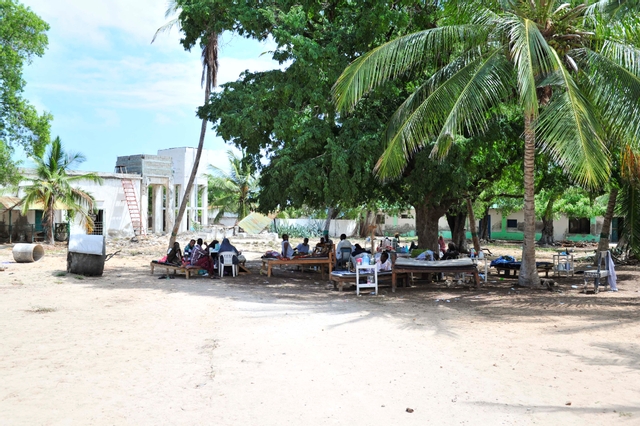Introduction
Haiti, a nation rich in culture and history, has faced a myriad of challenges over the years, from natural disasters to political instability. However, amidst these difficulties, there is a growing movement of community empowerment in Haiti. Empowering communities is a crucial step towards sustainable development and improving the quality of life for its citizens. This article explores the importance of community empowerment in Haiti and the initiatives driving positive change.
The Significance of Community Empowerment
Community empowerment is the process of enabling individuals and communities to take control of their own lives, build resilience, and participate in decision-making that affects their well-being. In the context of Haiti, community empowerment is pivotal for several reasons:
- Building Resilience: Haiti is prone to natural disasters, including hurricanes and earthquakes. Empowered communities are better equipped to prepare for, respond to, and recover from such events.
- Local Problem-Solving: Communities are often the best judges of their needs. Empowerment allows local solutions to local problems, promoting sustainability and ownership.
- Improving Health and Education: Community-led initiatives can address healthcare disparities and educational challenges, ultimately leading to healthier and more educated populations.
- Strengthening Social Cohesion: Community empowerment fosters a sense of belonging and cooperation among residents, which contributes to social stability and development.
Community Empowerment Initiatives
- Local Governance: One of the critical aspects of community empowerment is strengthening local governance structures. This includes building the capacity of local authorities, improving communication, and involving citizens in decision-making processes. Efforts to decentralize decision-making power have gained momentum, allowing communities to shape their own futures.
- Education Programs: Numerous organizations and NGOs are working on educational initiatives in Haiti, including programs that provide resources and training to educators, establish schools in remote areas, and promote adult literacy. Education is a key driver of community empowerment, as it equips individuals with the knowledge and skills needed to advocate for their needs.
- Healthcare Access: Improving healthcare in Haiti is essential for community empowerment. Initiatives include training local healthcare providers, expanding access to medical services, and raising awareness of health issues. Maternal and child health programs are vital in addressing critical healthcare disparities.
- Economic Opportunities: Economic empowerment is another crucial component. Efforts to promote sustainable livelihoods, microfinance programs, and vocational training help communities become more self-reliant, reducing poverty and improving living conditions.
- Environmental Initiatives: Given the environmental challenges Haiti faces, community-driven projects that address deforestation, soil erosion, and sustainable agriculture are vital. These initiatives not only protect the environment but also secure livelihoods and food security for communities.
Success Stories
Several community empowerment projects in Haiti have yielded positive results. For example, the “Building Back Better” program, initiated after the 2010 earthquake, worked with local communities to rebuild infrastructure, improving their resilience to future disasters. Additionally, “Zanmi Lasante” is an organization that has empowered communities by providing healthcare and education, ultimately contributing to better living conditions.
Conclusion
Community empowerment in Haiti is a beacon of hope in a nation facing numerous challenges. It is essential for building resilience, improving living conditions, and fostering a sense of unity and purpose among the population. While there is still much work to be done, the progress made by community-led initiatives and the support of NGOs and the international community is a testament to the resilience and determination of the Haitian people. As Haiti continues its journey toward empowerment, it paves the way for a brighter future in which its citizens play a more active role in shaping their destiny.




